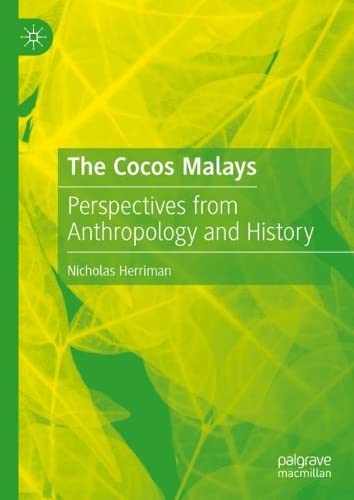

Most ebook files are in PDF format, so you can easily read them using various software such as Foxit Reader or directly on the Google Chrome browser.
Some ebook files are released by publishers in other formats such as .awz, .mobi, .epub, .fb2, etc. You may need to install specific software to read these formats on mobile/PC, such as Calibre.
Please read the tutorial at this link: https://ebookbell.com/faq
We offer FREE conversion to the popular formats you request; however, this may take some time. Therefore, right after payment, please email us, and we will try to provide the service as quickly as possible.
For some exceptional file formats or broken links (if any), please refrain from opening any disputes. Instead, email us first, and we will try to assist within a maximum of 6 hours.
EbookBell Team

4.0
26 reviewsLooking at the past from an anthropological perspective, this book deploys and analyses a variety of anthropological concepts to understand the history of Cocos Malay society. Around 400 Cocos Malays reside on their remote Indian Ocean atoll, the Cocos Islands. Possessing a unique culture and dialect, they could be considered Australia's oldest Muslim and oldest Malay group. Yet their society only developed over the past two centuries. In the early 1800s, a European gathered about one hundred slaves from around Southeast Asia. After settling on Cocos, a dynasty of rulers tried to distinguish themselves as European kings. Under them, the Southeast Asians in the group toiled in the export of coconuts. But despite this, these Southeast Asians influenced and intermarried with the rulers. As a result, a Eurasian society developed. The Cocos Malays were initially implicated in Southeast Asian and wider Indian Ocean trade and communication networks. Later, this connectivity intensified through technologies such as telegraph cable and the Internet. This book uses the history of the Cocos Malays to explore questions of broader interest to anthropologists, such as how concepts from the overlap of history and anthropology ‘unlock’ the history of societies; how we can usefully combine the ‘indigenous’ concepts like “kerajaan” with internationally accepted concepts like class; and what is obscured when we use the concepts from the anthropology-history crossover to understand the past.